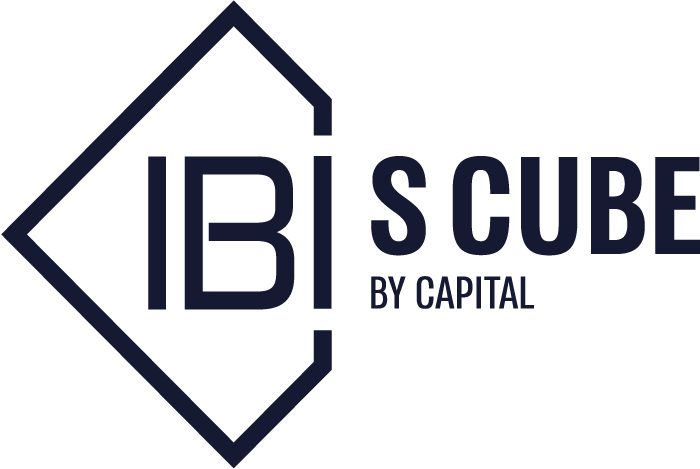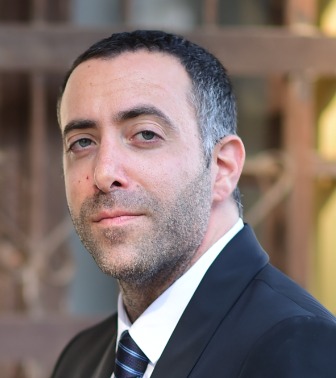Where is the Technology sector headed? Is the bubble popping or is a new era starting?
IBI Capital manages approximately 50% of the Israeli high-tech employees’ option portfolios, and a total amount of approximately $15 billion. Our subsidiary, S Cube, performs over 600 valuations per year and the vast majority of their clients operate in the technology sector, mainly start-ups at various stages, including unicorns and mega-unicorns. In fact, together we have access to financial information and a connection to most of the Israeli technology companies, which gives us a broad perspective on the microcosm called the Israeli high-tech. Looking back, in 2021, S Cube’s clients made unprecedented multi-billion-dollar secondary transactions, and it seems that the world has changed, and that it is not a temporary phenomenon as we assumed in the past. We had coffee with Tal Dori, CEO of IBI Capital and Gidi Shalom Bendor, CEO and founder of S Cube of IBI Capital, to discuss some of the key issues that we witnessed over the past year and perhaps help us understand where the Israeli high-tech is going from here.
2021 is behind us, and the high-tech tide seems extraordinary in terms of the volume of financing rounds and company valuations. What are the main macro-economic factors responsible for the current trend?
Shalom Bendor says, “Looking back on 2021, a new US president was elected, and the new president took much more significant steps to tackle the COVID-19 crisis. However, President Biden picked up where Trump’s actions left off and printed money massively, which affected the markets, stock markets, and especially the high-tech industry. Due to these actions, we witnessed very high IPOs and mergers to SPAC values throughout the first half of the year, but they partially halted in the second half of the year. We also observed a decline in the dollar’s value, and its purchase power.
These are all macro-economic processes that affected us all when a big ‘valuation’
premium was given to companies whose products and operation fields are intangible. Clearly, this generated an enormous impact on companies that are engaged in software, e-commerce, Zoom, etc”.
What do we know about the current Israeli high tech employee stock options compared to the past?
According to Dori, “Over the past two years, Israeli high-tech employee stock options’ values have doubled and more. Taking into account that many large clients have transferred their employee stock option portfolios to IBI Capital, like Tabula, ironSource, Monday.com, Innoviz, Otonomo, and eToro, but if we neutralize these companies’ value effect of our managed options portfolio, then about two years ago the numbers were significantly lower due to a few factors. First, the stock prices of most of the companies we work with have leaped by tens to hundreds of percent, and the option’s value is a derivative of the companies’ values, so even before we talk about the amount of options granted to employees, the options’ values have jumped by tens of percent.”
Beyond that, Dori noted that “The market has changed during this period in terms of capital compensation for employees in the high-tech industry. Although it has always been an integral part of the industry, the quantity, method, variety of compensation plans, and the employees’ view of options have completely evolved in the last two years. We know that concerning the number of employees, the number of currently distributed options has doubled, which is not surprising because it is the only tool left for small high-tech companies that helps them stay in the human resources game. Salaries are indeed higher. One of the indications of the options’ phenomenon is the number of companies that currently employ workers and sometimes even a team entirely dedicated this purpose”.
Price declines have been happening since the beginning of the year, are they part of the financial bubble popping?
“Not only are we not in a bubble, but we are at the beginning of a process,” Dori estimates. “Stock value corrections will happen, it’s part of the market cycle, and anyone who has been in the market long enough knows the cycle well. A bubble is formed when price inflation is not worth the stock price value. At the moment, there is a technological revolution going on in the world, and it seems that the COVID-19 outbreak accelerated the process, the world changed, and consumer preferences produced values that support stock prices, most of these companies are growth-oriented that show an accelerated growth rate. To translate growth into profit, for example, if companies grow but it costs them a dollar to recruit a customer who makes them half a dollar, then it is indeed a bubble. In my opinion, most Israeli companies traded on NASDAQ can turn growth into profit only by updating their policies. By the way, I personally know a significant number of companies that are completely there, and if you look at their business results, you can see that with a decision they can receive substantial funds to justify the high multipliers that they are traded by. Not only do I not think there is a bubble to pop here, but the technology companies are in the process of growing and it seems that despite the corrections in stock prices, records will continue breaking in the future.”
The COVID-19 effect is the trigger for these processes. A year ago, the prevailing assumption in the markets was that COVID-19 was a phenomenon that would be overcome within a few months, and now, even though the effects are still here, the level of hysteria surrounding the issue have diminished. Has the world learned to live at ease with the virus?
According to Shalom Bendor, “If we held this conversation until November 2021, I would tell you ‘We learned to live with COVID, I don’t see panicked reactions…’, but then the Omicron variant came along and shifted things around. Consequently, it is true that every few months we hear about a new variant, but the variant is not the only problem, the question is how our markets, stock exchanges, people, and leaders react. I don’t think it’s something that will pass in the upcoming year, but maybe in 2023 or even later”.
What about the future? What do you expect for the markets and especially for the high-tech sector? Where are we headed for in the next few months?
Shalom Bendor notes, “The technology tide seems to be fueled by phenomena that won’t stop in the near future. Money is cheap, interest rates are low, cash printing continues, and COVID’s direct effects will probably weaken or disappear at some point, though in my opinion, it won’t in the upcoming year, and the market expects the same. As you know, expectations ordinarily have a significant impact on the market and until now I can’t identify what will yield it to a stop.”
Shalom Bendor added, “If previous crises undoubtedly had a direct cause, like dot.com, when people sold one dollar for 90 cents, or in the sub-prime crisis when unsecured loans were handed out to people who could not repay them; at the moment, it is challenging for me to point to a temporary inflator to properly fix it, and that as a result the markets will probably tumble. I am unsure if the values will continue rising, but I do not think there will be a crisis. My concern is the high values. I purchase stocks… how exactly do I make a return on my investment? How long can they continue rising? I do not think the upward trend will continue, but in my opinion, it will not become a declining trend.”
In the economic press, unprecedented secondary transactions that have taken place recently are mentioned frequently. Do you recall similar times in the past?
“No, and my memory isn’t the problem” says Shalom Bendor, “It’s purely that there has never been such a time (even at the peak of the dot.com era). Based on the volume of secondary transactions made by S Cube clients, I estimate the current magnitude is 20 times higher than we have seen in previous years”.
Neutralizing Secondary Transactions – Has the pace of exercise of options increased compared to the past?
“Not significantly,” says Dori. “On the one hand, it is not surprising because it means the employees believe in their companies. On the other hand, it is surprising that these employees, most of whom were not born rich, got wealthy on paper, and aren’t turning it into cash. It’s a phenomenon that characterizes a market that goes up over time, prices rise, and in all this optimism, employees (and investors) tend to believe the good will become great.”
Why is this phenomenon happening? COVID caused a tide in the entire high-tech industry. Are more options granted today as compared to the past? Or is it because companies are simply giving extra benefits to employees due to the cash excess?
“A few things happened”, says Bendor. “First, just like other trends, secondary deals also have a ‘herd effect’. It suddenly became legitimate, common, and the ‘right thing’ to do these deals, which is a 180-degree change! If ten years ago numerous investors and board members in Israel thought that secondary deals are a betrayal of the homeland (the company), ‘What? Don’t you believe in your company?’ and so on, suddenly it became something with many benefits. If you don’t want the company to be sold for $30, $40, or $50 million, but you desire it to be sold for hundreds of millions and billions of dollars and maybe even billion-dollar IPOs, etc., it takes time. In the meantime, the employees, entrepreneurs, and investors who invested at early stages do not meet the money. That’s why secondary deals have gone from ‘homeland betrayal’ to the proper path, because it allows primary investors to receive a return on their investments. They have not necessarily invested funds in the company for 20 years, so at least that allows them to sell their holdings or some of their holdings. The same goes for employees – a person who works hard year after year, suddenly brings home money that reminds them why they work. Secondary deals became a preservation tool, a tool that can be translated into money. The ESOs are not just paper, but they can actually be translated into cash money. Just as important, founders receive a lot of money while new investors who want to increase their holdings can do that without diluting other investors and shareholders”.
Economically, it’s an improvement in high-tech wages that are relatively high anyway – do you think this is a long-term change in wage conditions or a phenomenon that will pass when the current funding tide recedes?
“I think it’s definitely a norm that will stay around for a long time,” Dori estimates. “Companies do not become public every day and this is needed in order to preserve quality staff over time, so a senior programmer does not feel like he has to work for a company like Google to exercise options from time to time, so there is no reason for this phenomenon to disappear. Perhaps the scale of the phenomenon will weaken a little in the future, because we are still in a boiling market, but I do not think it will pass“.
Shalom Bendor says, “If you live in an old building and climb three floors every day, it does not really bother you. But if an elevator is installed, and suddenly the elevator breaks down, will you think it’s not a problem since you climbed the stairs for years? No. You got used to the elevator. I think it’s the same with people, flexibility doesn’t go both ways. Once employees get used to these benefits, it will prove very difficult for employers to take it away.”
Did the money that flowed to high-tech employees impact the rise in Tel Aviv housing prices?
“Absolutely yes,” Dori says. “As part of IBI Capital’s operations, we run a Family Office (financial planning for affluent families) that provides services only to clients who manage their options portfolio with us, that are, in simple words – high-tech rich. Within this activity, we see the initial capital routed in most cases for real estate purchases”.
Are we witnessing the rise of a new class – high-tech employees? Or is this news for the whole economy?
“Thanks to the norm set in the high-tech world, we see that the option granting phenomena is spreading to other sectors,” Dori noted. “Don’t forget programmers are only a tiny part of the industry that is growing at an accelerated pace and employs a wide range of professionals around the developers. Ultimately, we live in a world full of professional competition, and if high-tech companies are willing to pay them more, then their wage demands rise. The bottom line is we manage employee stock options for diverse companies, from high-tech to wineries, restaurants, and garages that have decided to grant employee stock options – the market norm is changing. Nowadays, every graduate looking for a job asks about options”.
Can you point out common and easy mistakes to avoid for companies that started to grant options?
“Especially for companies that have started adopting equity-based compensation plans and do not have a regular option granting routine yet, I advise that executives remember that option granting is a human resources event, much more than an economic event and it should be managed properly,” Dori explains. “A professional training should be provided so that the employees recognize and appreciate what they possess. Assume that most employees do not understand much about their options. If employees are not aware of what they have in hand, then the initial purpose of the granting, which is to preserve employees for the long run, will fail. Therefore, if you want the option plan to achieve its goals, the employees need to feel connected, like partners, and to understand that the company’s success is their success”.
Can you point out common mistakes that employees who hold options can easily avoid?
“First, I would suggest senior employees pay attention to the options expiration date,” says Dori. “Options have an expiration date, usually 7 or 10 years from the grant date. If this date passes without exercising them, they are canceled. Employees who leave the company and have vested options should note there is usually a 90-day grace period for exercising before the options are canceled. Many employees think vested options don’t expire – and that is a mistake.”



